By Dr Guy Kioni and Shlomo Roiter Jesner
The global race for critical minerals is intensifying, with the Middle East emerging as a new strategic partner, investing in Africa’s mineral sector. The global demand for lithium, cobalt, nickel, and other rare earth elements has increased as significant international attention turns to sub-Saharan Africa. These essential components are vital for electric vehicle (EV) batteries, renewable energy technologies, and defence applications, all burgeoning sectors in the world market.
Middle Eastern countries, such as the UAE, Qatar, and Saudi Arabia, have increased investments across the African continent, subsequently offering new partnerships that complement, rather than entirely challenge, China and Russia’s established roles in the critical mineral sector in Africa. The Middle East’s financial investments foster collaborations between sub-Saharan Africa and the Middle East, as both regions stand to reap the benefits of diversified economic growth and sustainable developmental goals put forth by the UN across the continent. By introducing a new group of investors, African countries have the opportunity to balance the existing partnerships with China,Russia and to some extend the EU and benefit from improved diplomatic relations with Western nations.
China, in particular, has maintained control over significant portions of the cobalt and lithium supply chains, while Russia has invested in state-owned enterprises in sub-Saharan Africa. However, the growing presence of the UAE, Qatar, and Saudi Arabia allows for a diversification of investment that can complement African policy goals, with a strong interest in infrastructure development, capacity building, technology transfer alongside a broader shift from aid to trade. The hope is that, with time, Africa’s increasing engagement with these new actors will reduce its reliance on any single external nation, opening the way for more balanced international partnerships thus providing balance in an increasingly multilateral international order.
A key example of this evolving dynamic can be seen in the Democratic Republic of Congo (DRC), one of the world’s largest suppliers of coltan, manganese, and copper. The competition for control over mineral wealth and export routes in the DRC underscores the global race for resources. For instance, the railway corridor from Lubumbashi to the Angolan port of Lobito is emerging as a critical export route for Congolese minerals. Until recently, these exports primarily travelled by road to the port of Durban in South Africa. The railway offers a significant advantage, as a single train can transport between 1,000 and 1,200 tons of minerals, compared to 30 trucks required for the same load.
The Chinese government has played an important role in modernizing the railway on the Angolan side, investing over 2 billion euros to renovate more than 1,300 kilometers of track. However, operational control of the route has been handed over to a consortium, led by the Swiss trader Trafigura. In August 2024, the first copper exports by rail were launched, signalling a shift in the region’s logistics. Western countries, particularly the United States and the European Union, have also taken part in this race, investing 630 million euros to refurbish the DRC’s portion of the rail network to protect their interests in this critical trade corridor.
China is planning to overhaul the Tazara rail line through a public-private partnership to retain its influence over key trade routes for critical minerals. Originally constructed in the 1970s with Chinese investment, the railway connects Zambia’s copper belt with Dar es Salaam, Tanzania. This project will compete with a US- and EU-supported trade route linking resource-rich regions to Angola’s port.
In the energy sector, Chinese companies continue to play a significant role in the DRC’s development. For example, in September 2024, the DRC signed a Memorandum of Understanding with China Molybdenum Company Limited (CMOC) to boost its energy capacity. This agreement aligns with the DRC government’s push for green energy solutions and includes plans to build photovoltaic plants and solar parks, with the first phase in Lualaba province aimed at providing more stable electricity to the population and mining companies. This collaboration highlights how China remains an important partner for the DRC’s infrastructure and energy ambitions, particularly in the context of the China-Africa Cooperation Forum (FOCAC) held in Beijing earlier that month.
From a political, economic, and security perspective, the Middle East’s growing influence in Africa complements the existing relationships African nations have with other global powers like China. The Middle Eastern approach is seen as more collaborative, often aligning with African policy goals such as infrastructure development and youth employment. China, while sometimes criticized for focusing heavily on resource extraction, has also committed to initiatives like the solar energy projects mentioned above, demonstrating its evolving role in Africa’s energy transition.
Economically, the Middle East has shown a greater interest in fostering long-term sustainable growth, which could complement China’s established presence. The competition among these powers ultimately benefits African nations, providing them with more options to choose from when negotiating terms for their development.
The growing relationship between sub-Saharan Africa and the Middle East represents a turning point in the global supply chain for critical minerals. Middle Eastern nations are leveraging their financial and technical capabilities to invest in Africa, while African nations are weighing the benefits of these new partnerships alongside their established ties to China and Russia. This broader diversification of partnerships offers African nations the chance to foster sustainable economic growth, invest in infrastructure, and focus on critical minerals while ensuring the development of local communities and minimizing environmental impacts.
The UAE’s Masdar company, known for its leadership in renewable energy innovation and sustainability, exemplifies how the Middle East can contribute to infrastructure development while focusing on environmental sustainability. Middle Eastern financial backing, combined with expertise in renewable energy and regional stability, offers African countries an opportunity to achieve their development goals in a more balanced, diversified manner.
As the global demand for critical minerals accelerates, the coming years will be pivotal for Africa’s role in shaping the future of the global supply chain. The increasing involvement of Middle Eastern investors presents a unique opportunity for African nations to redefine their strategic partnerships, opening new avenues for sustainable development and economic growth. By diversifying alliances with a broader range of partners, Africa can set the stage for a more self-sufficient future, where the continent not only supplies the world with essential resources but also retains more value through localized processing and production.
This evolving landscape requires African governments and industries to strategically align with partners who not only contribute financially but also bring expertise in technology, infrastructure, and governance. The intersection of Middle Eastern investment, Chinese infrastructure initiatives, and Western interest in critical minerals could enable African countries to drive forward ambitious goals such as reducing carbon emissions, building resilient economies, and advancing regional integration.
In the near future, as new projects and partnerships materialize, African nations will be better positioned to negotiate from a place of strength, ensuring that these global collaborations are both profitable and sustainable. With the potential for increased investment in renewable energy, infrastructure, and local capacity building, Africa’s critical mineral wealth could unlock unprecedented opportunities for long-term prosperity. The future of Africa’s mineral sector is not merely about extracting resources—it’s about shaping the global narrative of sustainable development and economic autonomy for the continent.
About the Authors
 Dr Guy Kioni is the CEO of Missang, a geostrategy and management consultancy firm. He specialises in critical mineral supply chain and emerging technologies such as AI and Blockchain.
Dr Guy Kioni is the CEO of Missang, a geostrategy and management consultancy firm. He specialises in critical mineral supply chain and emerging technologies such as AI and Blockchain.


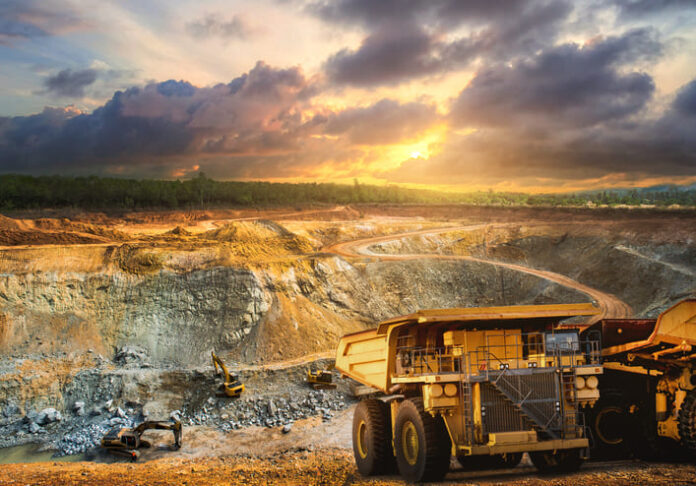

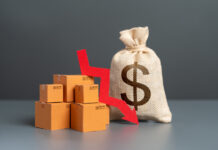

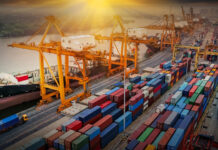

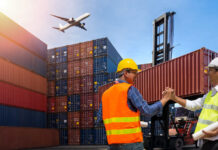
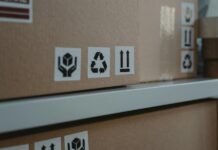

















![“Does Everyone Hear Me OK?”: How to Lead Virtual Teams Effectively iStock-1438575049 (1) [Converted]](https://www.europeanbusinessreview.com/wp-content/uploads/2024/11/iStock-1438575049-1-Converted-100x70.jpg)




